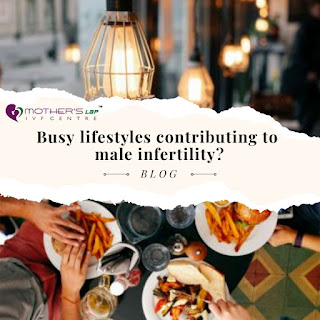Q1 There is a steady rise of infertility in India. Why is
infertility on the rise in India?
Ans. According to
a report published in WHO , from the overall population, around 15-20 per cent
couples face challenges in having children. There is a slight increased in
percentage in the urban areas as compare to rural areas. The reasons for higher
cases of infertility in urban areas are busy, hectic lifestyle, and unhealthy eating
habits, being more career oriented, less sexually active etc. Ease to junk
food, packed food, smoking, drinking, obesity etc. have a negative impact on
the fertility in both males and females.
Q2 What are the new types of treatment available for
infertility?
Ans. There are many new techniques and treatments in the
field of infertility. Some of the technologies are more about eliminating the
human effort as well as human errors. Some of them being are:
- IVF, In vitreo fertilization which is the most common way to treat infertility.
- Assisted Laser Hatching: This technology helps the embryo to better attach to the womb.
- I.M.S.I., Intracytoplasmic morphologically selected sperm injection (IMSI) is a technique to be better able to assess the structure of the sperm and exclude the sperm with suspected abnormalities from being injected into the available eggs.








